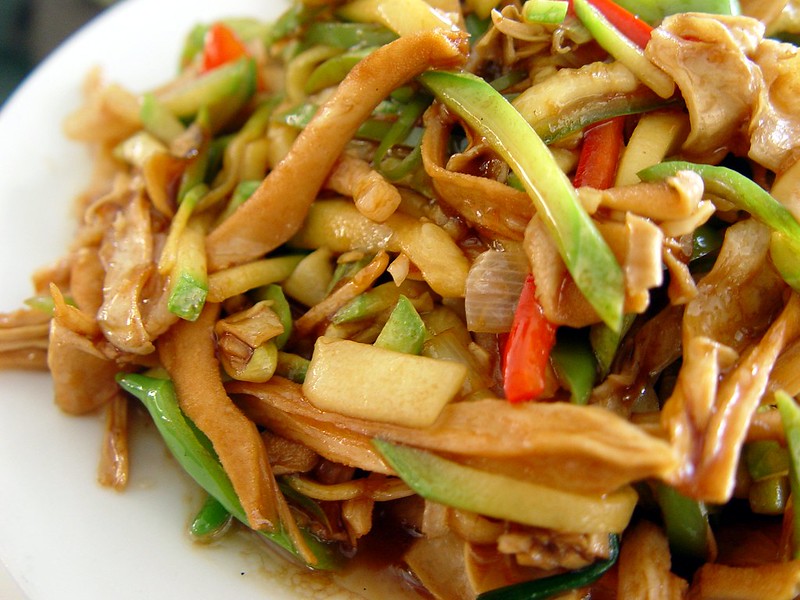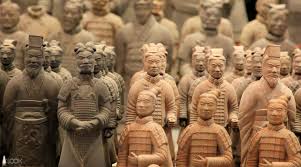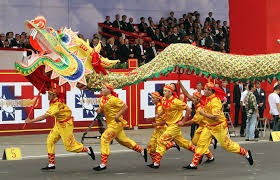Chinese Food Cultural

Shopping daily for fresh food is essential for all Chinese cooking. Unlike the fast food society of the U.S., the Chinese select live seafood, fresh meats and seasonal fruits and vegetables from the local market to ensure freshness. This means swimming fish, snappy crabs, and squawking chickens. Even prepared foods such as dim sum or BBQ duck for to go orders must gleam, glisten, and steam as if just taken out of the oven.

Chinese food. Photo by omefrans.
Chinese people in general are not as concerned about nutrition as Western culture. They are more concerned with the food’s texture, flavor, color, and aroma. These are the crucial points for good Chinese cooking. Chinese daily meals consist of four food groups: grains, vegetables, fruit, and meat. Because of lactose intolerance, Chinese do not consume large amounts of dairy products. Instead, Chinese substitute these with soymilk and tofu, which also contain large amounts of protein and calcium. Vegetables, fruits, and meats are usually fresh. Some exceptions include preserved vegetables such as snow cabbage or mustard greens, preserved eggs, aka “thousand year old eggs” or salted and dried fish. Other exceptions include snack items such as beef jerky, cuttlefish jerky, sweet and sour preserved plums, or dehydrated mango slices. Canned or frozen foods are seldom eaten. Western desserts such as cookies, cakes, pies, and ice cream are eaten only on special occasions such as birthdays and weddings. After dinner, families usually eat seasonal fruit as dessert. Chinese desserts such as red bean soup, sweet white lotus’s seed soup, or steam papaya soup are served every so often as a special treat on a hot summer’s night.
Ethnic Chinese cooking does not involve a lot of deep fried cooking. The reason most of the Chinese restaurants in America have deep-fried dishes such as sweet and sour pork, almond fried Chicken, and deep-fried shrimp is to promote business and to please western tastes. This clearly reflects why there are more overweight and high blood pressure concerns in Western culture than there are in Chinese culture.
Credits
- /ethnomed.org/
Author(s): Kathy Lin, Harborview Medical Center, Seattle WA
Reviewer(s): Nadine Chan, Editor, Fred Hutchinson Cancer Res Ctr, Seattle WA




